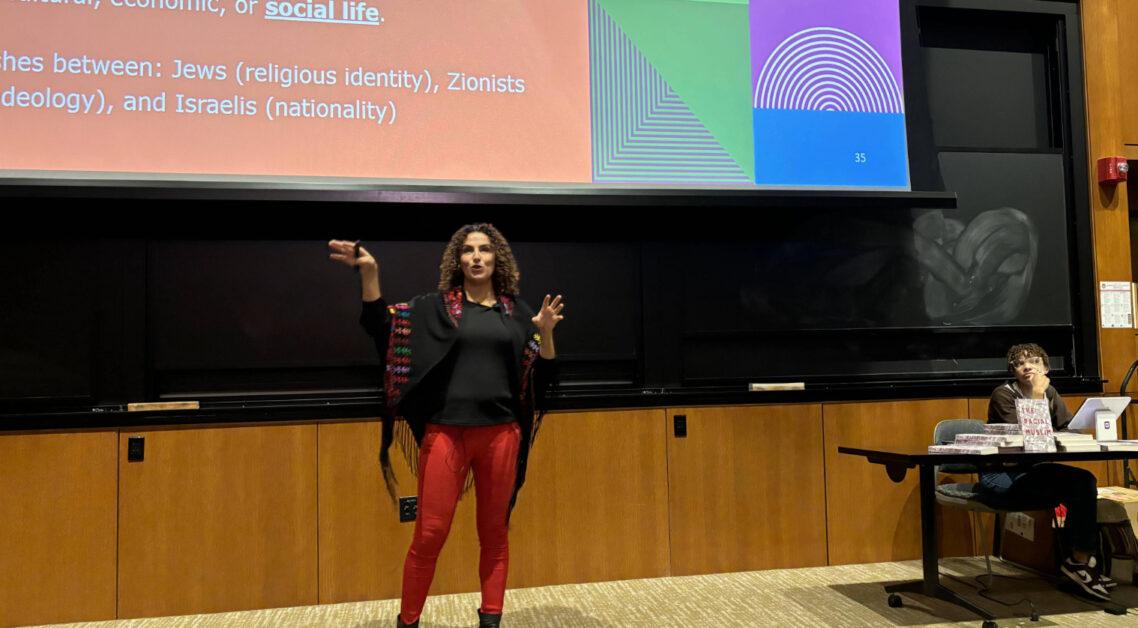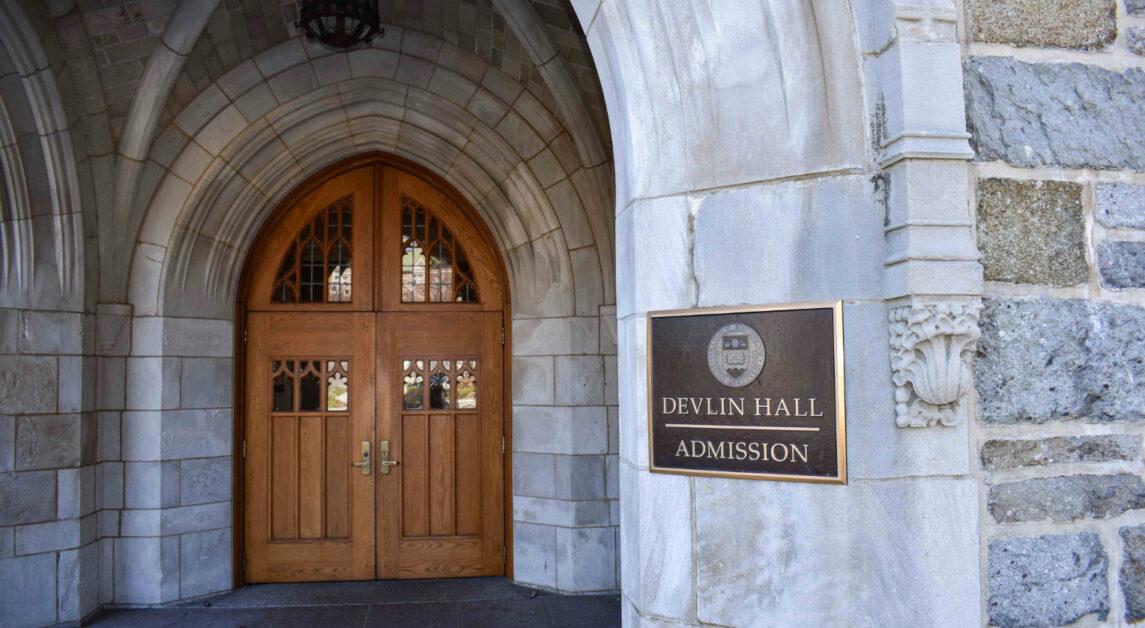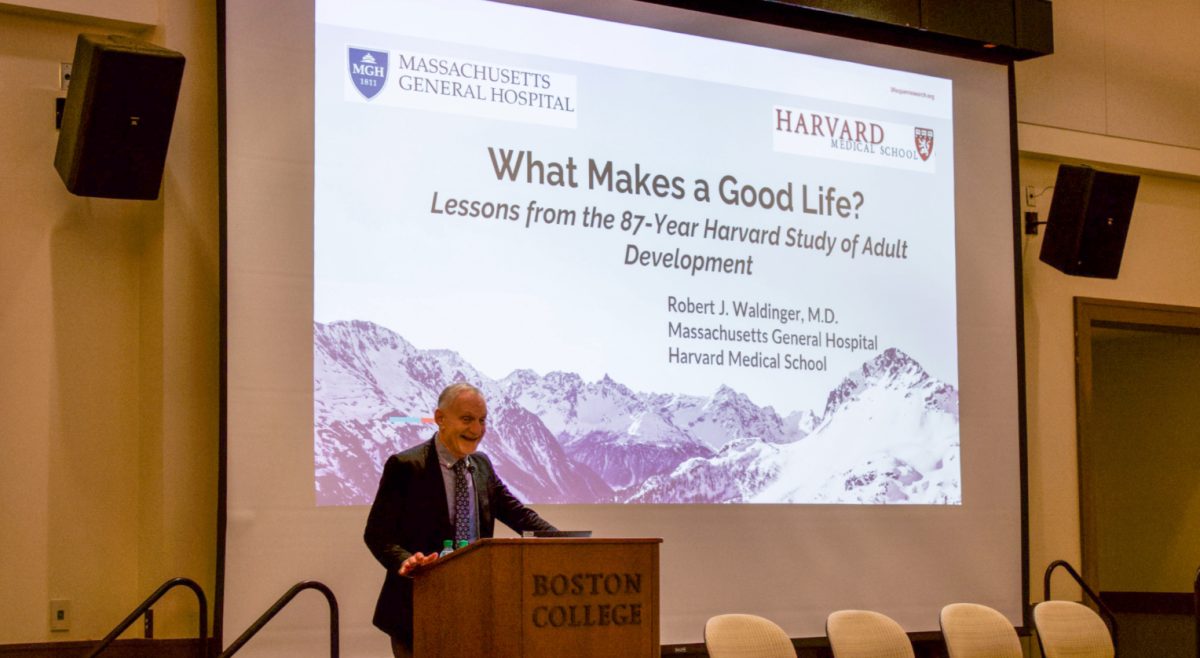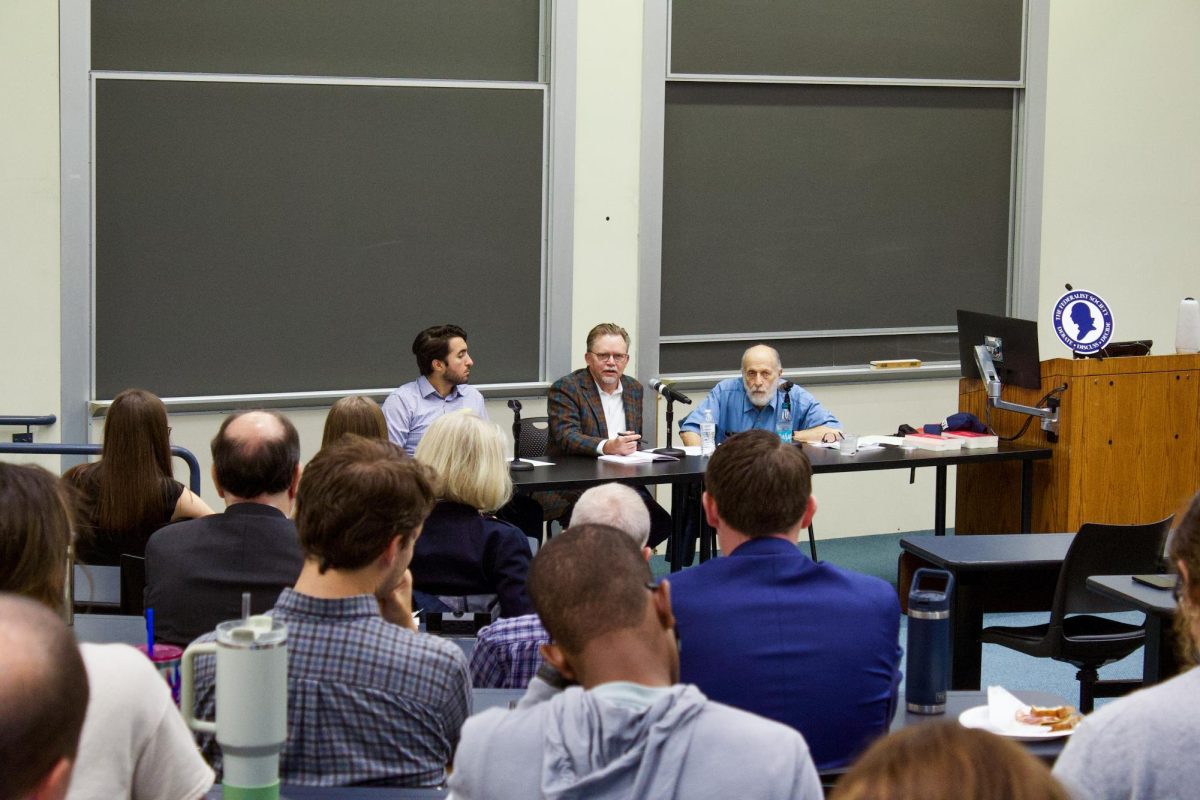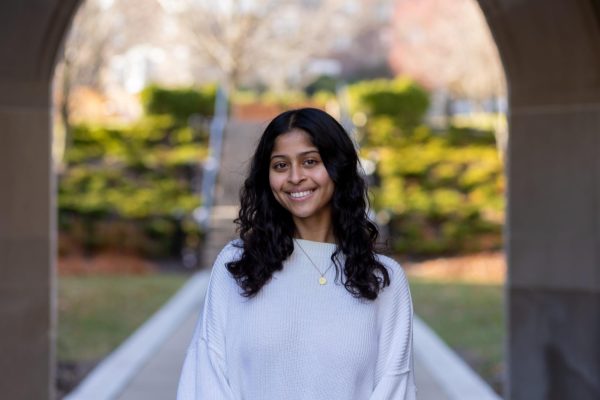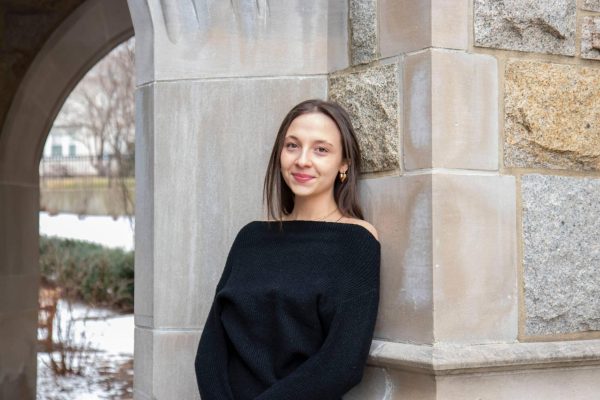Racism and remarks against Muslims and Palestinians are running rampant on college campuses, according to Sahar Aziz, distinguished professor of law and chancellor’s social justice scholar at Rutgers Law School.
“As college students, you know this first—anti-Palestinian racism and Islamophobia are driving attacks on free speech and academic freedom on college campuses,” Aziz said. “That is the drive in the last 12 months.”
Aziz spoke at BC on Wednesday, addressing how harmful rhetoric about Muslim and Arab communities, converging with anti-Palestinian discourse, has adversely affected civil liberties and academic freedoms on college campuses.
Aziz discussed common tropes against the Islamic community, speaking to the historical racialization of Muslims, both pre and post-Sept. 11. Aziz introduced many prevailing stereotypes against the Islamic community, comparing them to sexist or racist tropes against other marginalized communities. The difference, she noted, is that Islam is a religion, rather than the phenotypically-based racialization most are accustomed to.
“In this post 9/11 era, to be Muslim is not solely a religious identity,” Aziz said. “It has become a socially constructed racial identity rooted in social and political structures that treat Islam as a violent political ideology.”
Aziz emphasized that the U.S., according to the First Amendment, is designed to be a haven against religious persecution. The treatment that Muslims have received, however, is quite the opposite, she said, outlining a history of policy against Muslims in America, such as President Donald Trump’s 2017 Muslim Travel Ban.
“State action legitimizes private action, and then it’s kind of the circular cycle that keeps going,” Aziz said. “Then you would create populist backlash against Islamophobia, which was the Muslim ban. It got so bad and so extreme.”
Aziz highlighted the role that self-described Zionist organizations play in silencing advocacy and criticisms of Israel in higher education, rather than prioritizing the safety of all students regardless of identity.
“They are actively interfering in the administration of higher education through lawfare, donor coercion, and public smear campaigns against university presidents and faculty based on an ideological agenda, not anti-discrimination commitments,” Aziz said. “The ideology is no criticism against Israel, ever.”
According to Aziz, over 54,000 innocent civilians have been killed during the Israel-Hamas War thus far—a number that is increasing every day.
“17,000 children—that doesn’t include the missing, the ones that are presumed dead under the rubble—have been killed,” Aziz said. “The Gaza Strip is the most dangerous place in the world to be a child.”
Aziz encouraged those at the lecture to think about the catastrophe from a human level. It is very common for Palestinian families to all live together in one building, as they tend to live with their extended family, she said.
“So when an entire building collapses and there are still civilians inside, the entire family is killed,” Aziz said. “Just think of that level of devastation. Think of it. What if that was your aunt, your uncle, your cousin, your brother, your sister?”
Aziz then showed a slide about two instances of hate crimes against Palestinians in America. In October 2023, a 6-year-old Palestinian American boy was stabbed 26 times. In November 2023, three 20-year-old students of Palestinian descent were shot and injured in Vermont.
“What if these had been Jewish-Americans or Israeli-Americans and all the facts would have been the same?” Aziz said. “How would people respond? How would the media respond? How would the Congress respond? I think they would certainly humanize them … I am not stating that Jewish people should be treated less than, worse than. I am stating that Palestinians should be treated equally as Jewish people have.”
Aziz emphasized that her role as a lecturer is not to convince the audience of her argument, but rather to encourage critical thinking and independent exploration, so the audience can arrive at their own decision.
“I do not care if you agree with me or not—It’s not my job,” Aziz said. “My job is to expose you to a set of ideas, a set of analysis to provide this little evidence that I believe supports my conclusions, and then you guys do the research. Your job is to think.”

